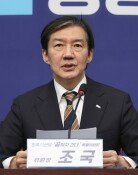[Editorial] Neglect of Budget Bill
[Editorial] Neglect of Budget Bill
Posted December. 01, 2009 08:24,
The Dec. 2 deadline for the budget bill at the National Assembly is looming, but parliament is unlikely to pass it due to the Sejong City dispute and the budget for the four-river restoration project. Article 54 of the Constitution says the National Assembly must pass the budget bill 30 days before the start of a fiscal year. Since most standing committees did not finish their preliminary reviews by yesterday, the National Assembly is likely to violate the Constitution for the seventh consecutive years. While both the ruling and opposition parties diametrically oppose each other, they seem to use the budget bill as a hostage by making excuses.
In the TV program Dialogue with the President aired live Friday night, President Lee Myung-bak said the 22 trillion won (18.9 billion U.S. dollars) budget for the restoration project is lower than what the Kim Dae-jung (24 trillion won or 20.6 billion dollars) and Roh Moo-hyun (87 trillion won or 74.8 billion dollars) administrations spent on flood control. Of course, the figures are apples and oranges because they were for different projects in different periods of construction. Yet previous governments have conducted river maintenance, so the Nakdong, Han and Geum rivers need cleaning up, just like the Yeongsan River. This is a project that should be neither pushed nor completely opposed.
No agreement on Sejong City has come as political parties have used political logic instead of reflection of the project as a great national plan. President Lees personal persuasion has not overcome disagreement from opposition parties and regional discord. Opposition leaders want to oppose the plan as much as possible to win over the residents of the Chungcheong provinces. The ruling party is also not responding more systematically and sees no agreement within the party.
Because of the disputes over the Sejong City and river restoration projects, parliament is ignoring bills on the national budget and other urgent matters needed for the peoples livelihood. A combined 266 government-proposed bills are pending at the National Assembly. Dozens of bills including one on tackling the economic crisis and support for the poor and middle class remain unresolved. As time passes by, bills on the budget and other matters are likely to be glossed over without much consideration.
Since the ruling and opposition parties seem to consider the constitutional deadline as an insignificant ornament, it is fair to say the National Assembly is lawless. National Assembly Speaker Kim Hyong-o said, The most important issue in the regular session is reviewing the budget bill, but this rings hollow. Parliament will likely manage to agree on the bill at the end of December and pass the bill in a day or two without giving much consideration to the bill. Or the ruling party will railroad the bill through the National Assembly because of fierce resistance from the opposition parties. One thing is certain: the National Assembly has seen no improvement over the past seven years.




![‘무사고 장롱면허’ 1종 안준다…내년 달라지는 도로교통법 [알쓸톡]](https://dimg.donga.com/c/138/175/90/1/wps/NEWS/IMAGE/2025/12/30/133064716.2.jpg)


